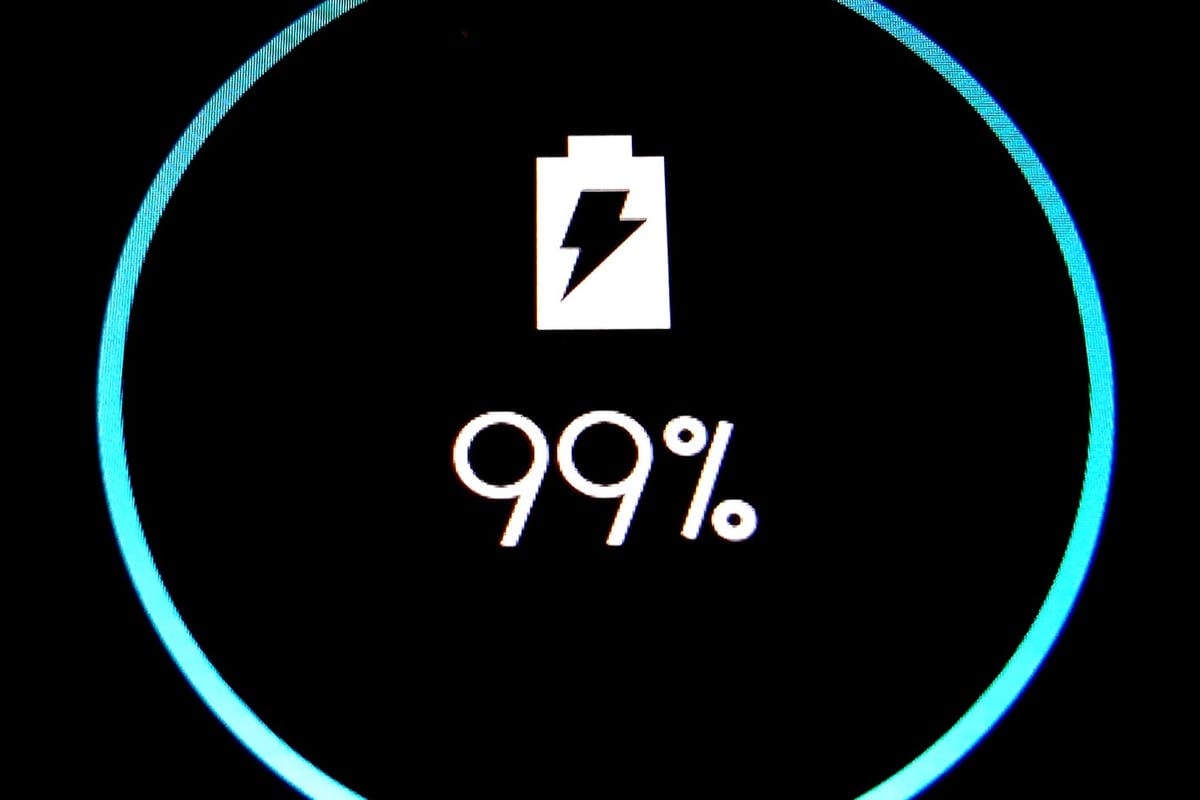Breakthrough battery charges in minutes and lasts thousands of cycles::‘Lithium metal anode batteries are considered the holy grail of batteries,’ researcher says
I’ll believe it when it ships. I’m genuinely optimistic that we can develop better batteries, but I’ve seen this story too many times before.
Once a week for the last 10 years a breakthrough is announced and twice on a full moon.
Every “breakthrough” makes batteries a percentage point better though.
deleted by creator
Batteries have been getting better. Density has increased by more than 8 times since 2008: https://www.energy.gov/eere/vehicles/articles/fotw-1234-april-18-2022-volumetric-energy-density-lithium-ion-batteries
It’s just that the tech shown in headlines promising 50x gains have huge caveats. The practical tech has been improving steadily.
A cool thing to do is to go on a site like GSMArena and follow the battery capacity over time of a particular line of phone (you can adjust for phone weight and volume if you want). It’ll steadily go up.
In 2010 most phone batteries were 1000-1500mAh. Even something like 2000mAh was a huge battery.
In 2015, phone batteries were up to 2500-3000mAh.
In 2020, they were up to 4000-4500mAh. 5000mAh was considered a big battery.
Now, we are commonly seeing 5000-5500mAh batteries in mainstream phones, enabling most phones to get 12-14 hours of battery life (when new).
That’s really cool and more impressive than I would have guessed. Thanks.
Those 90 stories you’ve seen generally did all ship. Just three decades ago lithium batteries stored about 80Wh per kg. These days it’s around 600Wh per kg and our progress has been particularly rapid lately.
Durability, safety and charge speeds have also all been improving. Oh and costs are coming down dramatically as well.
Ignore the “present” line on this chart as it’s an old one:

Same here. I’m not clicking on the article. I’ll celebrate when a retail product comes out with said battery.
Feels like I’ve seen the same story in the last 20 years.
Remember fuel cells? One tiny drop would power your phone for a week.
Battery news is pretty world changing so I understand whybit gets the same kind of attention miracle health advancements get. Unfortunately the hardest part remains making a commercially viable product but that said even finding new techniques that may not make it to market still advance the field further and expand our understanding.
Another breakthrough!! Add it to the pile…
…can power one whole LED.
… and costs 1.2 million to manufacture. Built with moon rocks and distilled human souls.
Admittedly it’s been awhile since I’ve raw dogged the Internet. I’m traveling without my usual pihole. How does anyone do without ad blockers? Reading that was like trying to read an article surrounded by times square billboards. “Support our journalism, turn off your add blocker”. My ass
NextDNS and Firefox with uBlock Origin.
Now for Android as well 🎉🎉
Now for Android
uBO has been the first addon approved after Firefox rewrite, so it’s been pretty much always there.
No idea but you can use Firefox mobile and uBlock origin in conjunction with switching your DNS to one that blocks ads. There’s also software that modifies your DNS locally.
‘Raw dogging the Internet’ for w/o ad blocker is now in my vocabulary
I use reader mode on my iPhone.
You can use ublock origin on Firefox mobile. If you want a chromium varient that handle extension on mobile try kiwi.
Set up a DNS filter on your phone itself. I’ve got an Android phone and use AdGuard, but there are filters for the iPhone too 👍
I have AdGuard set up at home and OpenVPN so I can connect to my home network and route all my traffic through it. Gives the same ad blocking ability but without the need to travel with it.
Can I ask why you’ve taken this approach? I understand why you would use AdGuard at home, but couldn’t you just also use it on your phone/laptop as well when you are away?
Wouldn’t using the VPN to your home network just add extra latency? Or is there some benefit that I’m not aware of?
The main reason is that it lets me access my home network. So if I want to watch a movie or something I have stored on my NAS, I can do that without exposing that service to the internet. Or if I want to Remote Desktop into one of my computers. And it’s a decent way to protect Internet traffic while on an untrusted public network.
I used to use the AdGuard app on my iPhone, but 1) I found for whatever reason it didn’t seem to work as well as the standalone self hosted version. The way it works on phones is that it does some sort of local VPN trickery, and for whatever reason it’s like it would temporarily stop working. Who knows. But 2) now I just have a single instance of AdGuard to manage and get its benefits on all my devices. I don’t need to maintain lists or rules for the one running at home and separately maintain rules in the phone app version.
Ah ok. That makes sense. Thanks for your reply.
VPN to your home network and still use pihole.
I use AdAway on my rooted phone. Honestly there are plenty of ways to filter ads out on most devices.
Raw-dogging the internet…I love it. I’m using that from now on.
Pihole or not, every device has its options for adblocking.
Brave on android.
I mean, so does a capacitor…
Capacitors don’t store enough power. They work well in trains where they can be charged continuously with overhead power lines/etc, and a lot of battery EVs have a small capacitor as part of their regen braking system… but if you want to actually store a large amount of power capacitors can’t do it (yet?).
That’s the point. It’s easy to charge a battery in minutes if it’s small enough
Fast cycling of lithium metal in solid-state batteries by constriction-susceptible anode materials - https://www.nature.com/articles/s41563-023-01722-x
Abstract
Interface reaction between lithium (Li) and materials at the anode is not well understood in an all-solid environment. This paper unveils a new phenomenon of constriction susceptibility for materials at such an interface, the utilization of which helps facilitate the design of an active three-dimensional scaffold to host rapid plating and stripping of a significant amount of a thick Li metal layer. Here we focus on the well-known anode material silicon (Si) to demonstrate that, rather than strong Li–Si alloying at the conventional solid–liquid interface, the lithiation reaction of micrometre-sized Si can be significantly constricted at the solid–solid interface so that it occurs only at thin surface sites of Si particles due to a reaction-induced, diffusion-limiting process. The dynamic interaction between surface lithiation and Li plating of a family of anode materials, as predicted by our constrained ensemble computational approach and represented by Si, silver (Ag) and alloys of magnesium (Mg), can thus more homogeneously distribute current densities for the rapid cycling of Li metal at high areal capacity, which is important in regard to solid-state battery application.
This is the best summary I could come up with:
The research team behind the novel design, who are based at Harvard University’s School of Engineering and Applied Sciences (SEAS) in the US, claim their solid-state cell could revolutionise electric cars and smartphones by significantly increasing their range and capacity while simultaneously reducing charging times.
“Lithium metal anode batteries are considered the holy grail of batteries because they have 10 times the capacity of commercial graphite anodes and could drastically increase the driving distance of electric vehicles,” said Xin Li, an associate professor of materials science at SEAS.
“Our research is an important step toward more practical solid state batteries for industrial and commercial applications.”
Their research focussed on lithium metal anode batteries, which have vastly superior capacities but until now have proved too unstable for practical use.
Charging this type of battery can result in them shorting or even catching fire due to a process called plating.
Since making their discovery, Professor Li and his team have licensed the technology through a Harvard spinoff company called Adden Energy in the hope of commercialising it.
The original article contains 303 words, the summary contains 175 words. Saved 42%. I’m a bot and I’m open source!
We’ll have a battery that will be thousands of times more energy dense that what we have today. The tech industry will make those the size of a rice grain so we can have thinner products and the exact same battery life of electronics today. 😑











